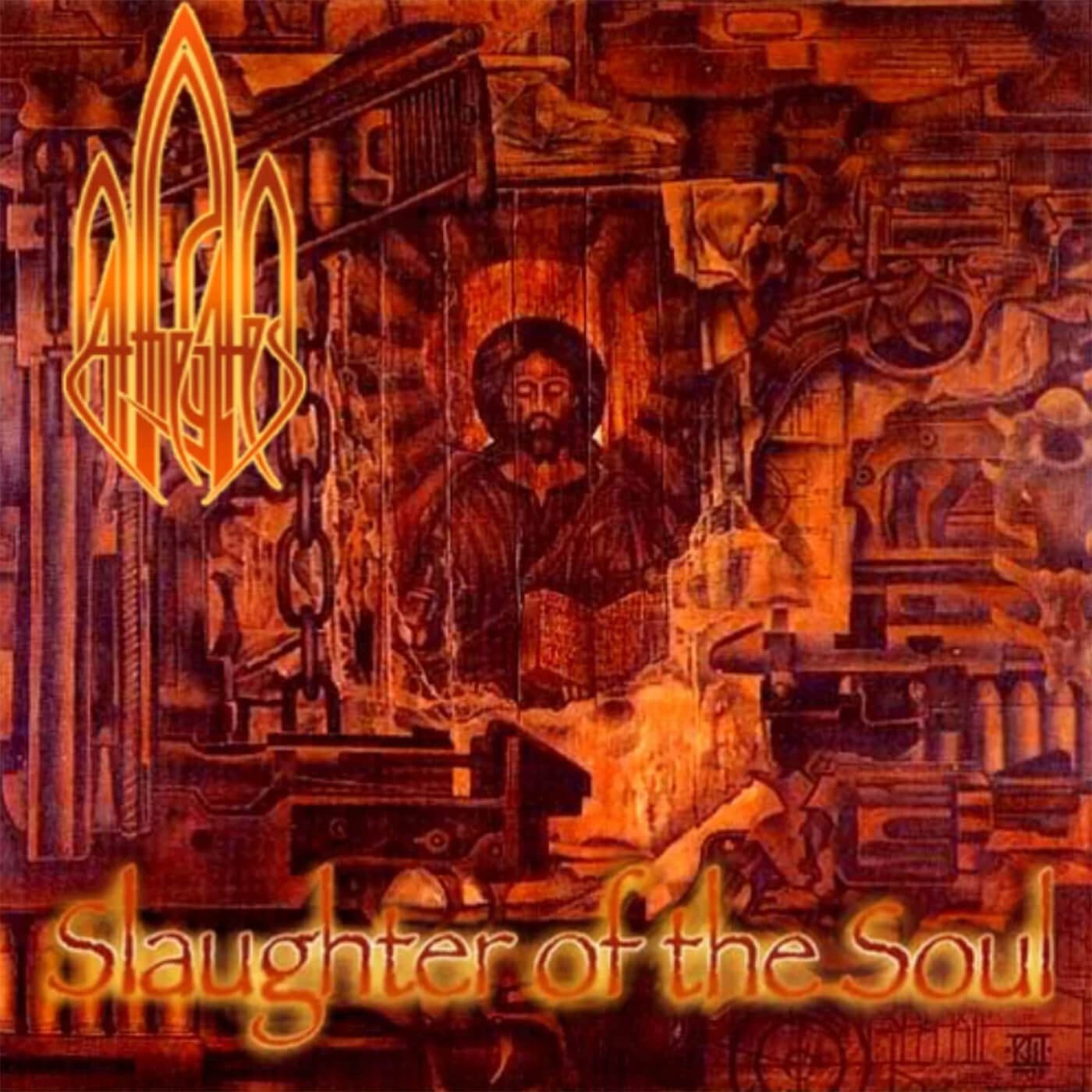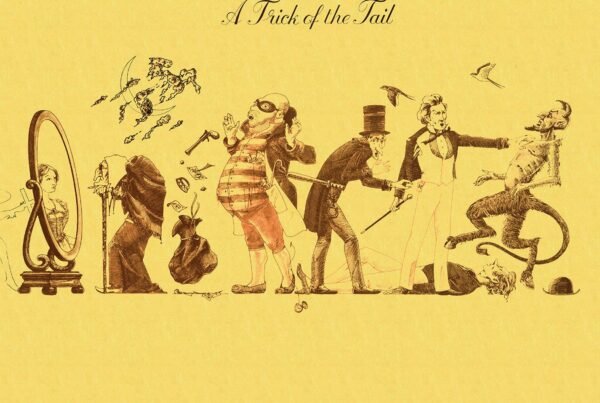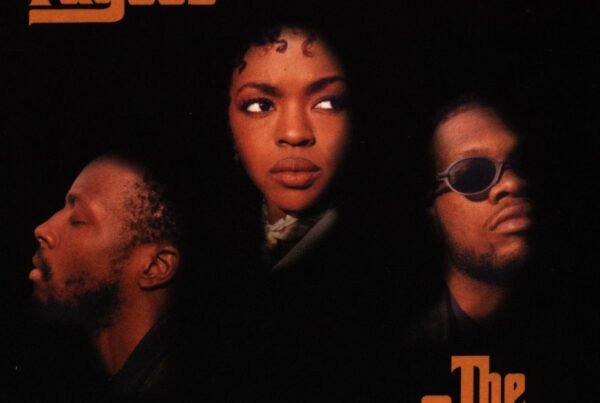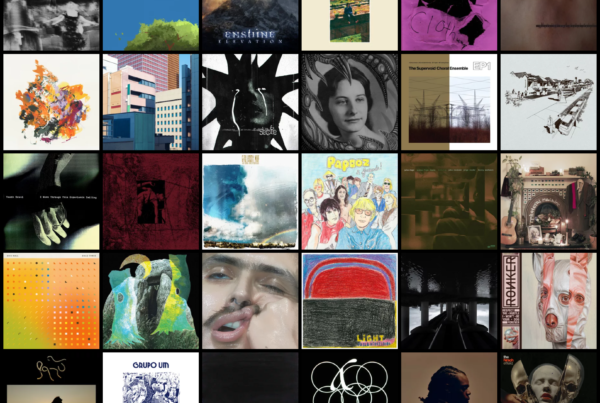‘When I first heard their 1995 magnum opus, Slaughter of the Soul, it immediately put to shame all of the melodic metalcore I was listening to that had clearly copied it.‘
-Brandon Essig

Release date: November 14, 1995 | Earache | Facebook | Instagram | Twitter | Website
The world moves in mysterious ways sometimes. This was originally planned to be nothing more (and certainly nothing less) than a nostalgic look back at a defining melodic death metal record, but as it turns out, it’s also become our final bow before one of the genre’s greatest vocalists. So as we go into the legacy At the Gates left with 1995’s Slaughter of the Soul, we pay tribute to Tomas Lindberg, who passed away in September from cancer.
Brandon Essig
When I first started getting into music, heavy metal was what I gravitated towards (as I’m sure many young drummers do). Classic thrash like Slayer was a formative influence, as well as more contemporary groups like Avenged Sevenfold, All That Remains, and Killswitch Engage – bands that practiced the now-standard harsh/clean vocal dynamic to give their sound as much wide appeal as possible. Additionally, the melodic, catchy dual guitar harmonies lent another accessible angle to their music, with many pointing to the obvious influence of old-school metal acts like Iron Maiden (another favorite of mine at the time). Of course, the convergence point between the melodic metalcore bands mentioned above and the New Wave of British Heavy Metal movement in the 1970s/’80s was the Gothenburg metal scene of the early 1990s, which saw Swedish bands such as In Flames mix those twin guitar leads with bludgeoning death metal, now colloquially called melodic death metal. Other groups from the scene like Dark Tranquility have experimented with their sound over the years (the less said about In Flames’ late-period nu metal material, the better), but one band have stuck to their melodeath guns like no other, and that would be At the Gates.
In those olden days (ie. pre-streaming, when music was simply pirated online), I downloaded music in bulk based on the artist’s reputation in the music world. Upon discovering how my then-favorite bands were essentially ripping off an older scene from a different part of the world, I was instantly intrigued and pulled songs from various albums by At the Gates. Only later would I grow to fondly appreciate just how excellent their run of albums in the early ’90s was, dropping one classic record after another every year from 1992 to 1995: The Red in the Sky is Ours, With Fear I Kiss the Burning Darkness, and Terminal Spirit Disease. When I first heard their 1995 magnum opus, Slaughter of the Soul, it immediately put to shame all of the melodic metalcore I was listening to that had clearly copied it. All of the ‘heavy’ elements of those bands that were often watered down by the presence of clean singing were in full force here. The opening “Blinded by Fear” begins with a fake out of sorts: industrial clanging accompanied by a voice saying ‘We are blind to the worlds within us waiting to be born’ – a sentiment that could be taken as motivational and wholesome if not for the music that follows. The song is rightly a metal classic, with memorable riffs, relentless drumming, and the late, great vocalist Tomas Lindberg retching in equal parts aggression and despair: ‘Born of the demon sky/Twisting reality/Sweet nauseating pain/Is death the only release?’ It becomes clear what the opening spoken word was truly referring to – fear holds us back, and by letting it consume us, we unleash Hell onto the Earth. It’s a stunning way to open the album, but At the Gates have much more in store.
The title track utilizes a 12/8 shuffle in conjunction with blastbeats to lay waste to everything in sight. The guitar work from Anders Björler and Martin Larsson throughout the song moves masterfully between crunching riffs and lead/solo work that never overstay their welcome or come across noodly. The following “Cold” features a guitar solo from Andy LaRocque of King Diamond, one I remember seeing in lists of the greatest metal guitar solos of all time – and that isn’t hyperbole, as the melodicism and whammy bar acrobatics he throws on it make it unforgettable. Lindberg’s lyrics are at their most unflinching here: ‘22 years of pain/And I can feel it’s closing in/The will to rise above/Tearing my insides out.’ It’s an astonishing triple-punch to begin Slaughter of the Soul with.
Other tracks like “Under a Serpent Sun” and “Need” subtly change time signatures and meter while the riffs and rhythms undulate, while “Into the Dead Sky” is a beautiful acoustic interlude that provides some necessary breathing room in the middle of the album. “Suicide Nation” has some devastating lyrics about how modern civilizations destroy themselves – ‘Suicide nation/Mass-appeal, death-addiction/Dead but dreaming/Restrained by phobia, brainwashed into submission’ – that ultimately feel even more timely today, while “Nausea” deals in similar themes of conformity and being swallowed up by a technological existence – ‘Genetic barcode hell/Mental genocide/Repulsive human shells/Choke on the fruits of life’ is about as harrowing a portrayal of the computer age’s effect on humanity as one is likely to hear, from the mid-’90s or otherwise. “Unto Others” has a stunning bridge that, while short, pulls the rug out from under the listener with Lindberg screaming over clean guitar tones and a stop-start drum beat; little touches like these keep me on my toes even after having listened to Slaughter of the Soul numerous times.
Only the closing instrumental “The Flames of the End” feels a bit dated with its synthy goth-metal vibe; going for spooky instead of violent isn’t necessarily a bad way to end a metal album, but At the Gates always sounded better while busting chops. Despite breaking up after Slaughter of the Soul’s release and various members going on to form another melodeath band known as The Haunted, the band returned in 2008 for reunion shows and several more albums that musically fall right in line with their ’90s output. With the recent death of Lindberg earlier this year, it’s unclear if the band will continue, although the remaining members did confirm that a new album was recorded prior to his passing. If they so choose to release it, I suspect it will be a fitting epitaph for one of metal’s greatest groups. ‘Only the dead are smiling,’ indeed.
Steve Loschi
I love these ASIR pieces because they give me an excuse to really reflect on my relationship with a particular piece of music, and those ties are always inextricably linked to a specific place and time. With Slaughter of the Soul, that place and time were crucially transitional for me. I’d just returned to Virginia from a two-year stint as a Peace Corps volunteer in Cameroon. Within a week or two, I’d started singing for a friend’s band.
We had a rehearsal space on Hampton Boulevard in Norfolk, a kind of no-man’s-land on the other side of the train tracks that separated the bougie Ghent neighborhood from the grittier, concrete mess of Lambert’s Point. There was no bathroom in the place, so in the winter we’d just pee in a paint bucket we kept in a closet. That thing would fill up until whoever was unlucky enough to deal with it had to precariously toss it out the back door into the parking lot.
It was in that context that I heard At the Gates for the first time. During practice, when the band was working on a song, I’d sometimes go outside for a smoke and sit in my brother-in-law’s Jeep, just listening to music. It was shortly after 9/11. The news was full of doom and gloom, and the Yankees (whom I hated) were making a dramatic run for the World Series. Our guitar player had Slaughter of the Soul on the CD player. When I turned it on, it cued up to the beginning of “Suicide Nation”— a shotgun reload sound reportedly pulled from the film Reservoir Dogs, according to the band.
While “Blinded by Fear” and the title track may have garnered most of the darkened glory from this classic album, for me, “Suicide Nation” was the game-changer. There has never been a more fitting opening to a song. Everything about its composition seemed to echo the simple, elegant, violent mechanics of a shotgun: a firing pin sparking, sparks igniting gunpowder, gas expanding in the narrow barrel, forcing out a traveling projectile of death. “Suicide Nation” was metal trapped inside the barrel of a gun. The guitars, bass, and drums were so tightly locked in that they had no choice but to explode into a weapon of destruction.
At the time, I’d drifted away from extreme metal, but Slaughter of the Soul dragged me back in. The songs were brilliantly and carefully crafted. The economy of the compositions, and Tomas Lindberg’s guttural groans — more melodic than the typical death growls of their peers — elicited an intense agony that fit the heavy riffage perfectly.
Opening song “Blinded by Fear” had all of that, a wicked riff and a fantastic melodic lead, before Lindberg spat the truth. The same could be said for “Slaughter of the Soul.” The dual guitars worked with the rhythm section like the stock, action, and barrel of a shotgun. There’s a precision to the songs on this album that ensures every part hits directly. In some ways, hearing Slaughter of the Soul was like being pumped full of shotgun shells. I was as good as dead, and I never recovered.
When it comes to extreme metal, Slaughter of the Soul is an all-time favorite, and for good reason. Beyond the fact that it’s forever tied to a time and place that reeked of an overflowing piss bucket and five dirty dudes playing loud music in a cinderblock practice room, it’s simply a classic of melodic death metal — one that’s rightfully influenced hundreds of bands who’ve felt the recoil of its massive weight. Thirty-five years on, it still sounds as deadly as it did when it came out, and the echoes of its shotgun blasts will probably reverberate for as long as people are still angry, pissed off, and making noise in shitty studios.





